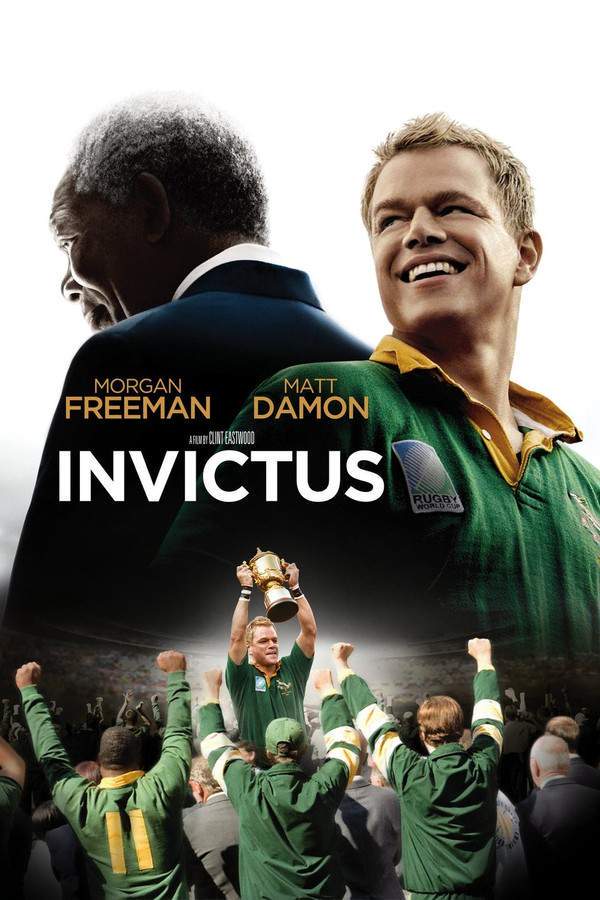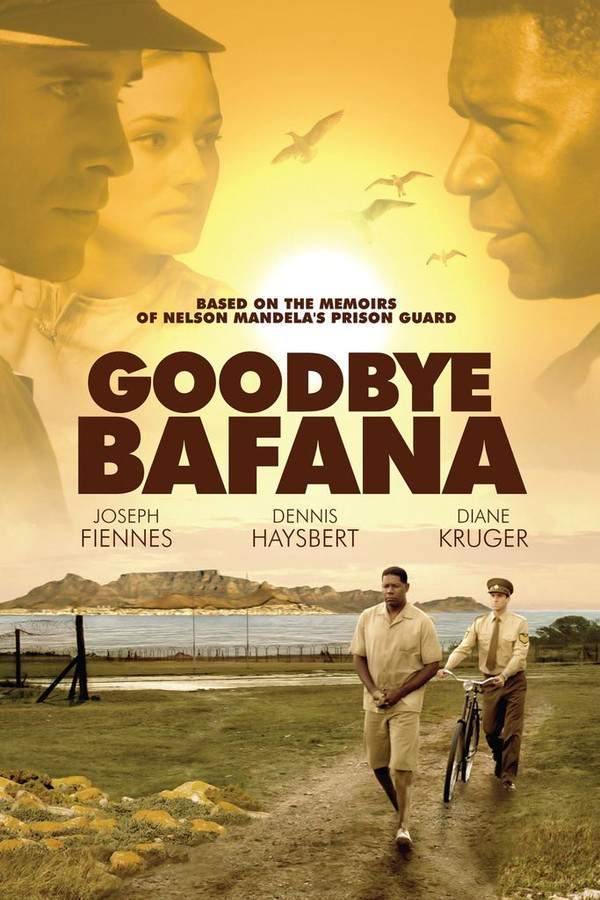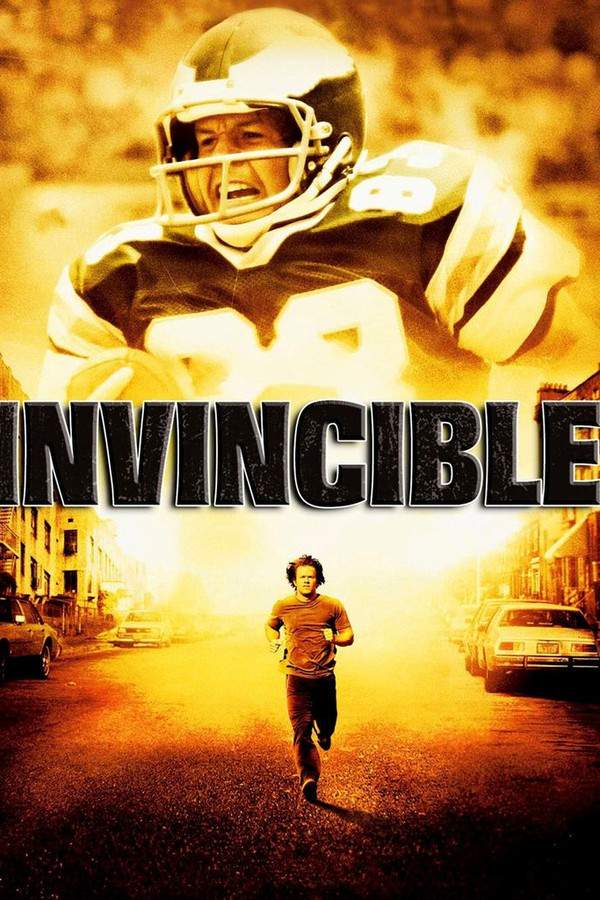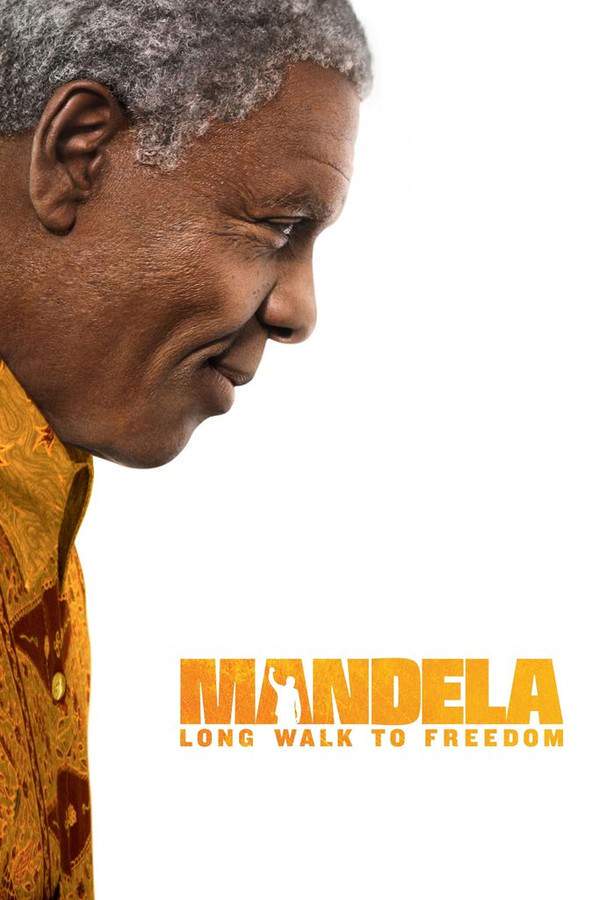
Invictus 2009
Made by

Warner Bros. Pictures
Test your knowledge of Invictus with our quiz!
Invictus Plot Summary
Read the complete plot summary and ending explained for Invictus (2009). From turning points to emotional moments, uncover what really happened and why it matters.
Invictus begins with the dramatic release of Nelson Mandela from prison in 1990, marking a pivotal moment after nearly 26 years of imprisonment on Robben Island for orchestrating acts against the South African government. His freedom heralds the decline of apartheid in South Africa, leading to his victorious election as the nation’s new leader. During his inauguration, he delivers an inspiring speech aimed at unifying the fragmented populace, which is starkly divided along racial lines between Afrikaners and various black tribes, including the Zulu, Xhosa, and Bapedi. This victory sparks celebrations among the black community, while many white Afrikaners and Zulu feel a sense of loss in their nation. The film captures this divide poignantly, juxtaposing a convoy of cars with Mandela against the backdrop of children playing soccer on one side and Afrikaners engaged in rugby on the other.
As Mandela settles into his presidency, his head of security, Jason Tshabalala (played by Tony Kgoroge), proposes an increase in security personnel for the president, recommending that some former white Special Branch officers be hired, which leads to initial tensions among the staff due to entrenched racial prejudices. Despite these complications, they recognize the necessity of collaboration. Early in his presidency, Mandela confronts the lingering anxieties of his administration when he decides against dismissing those who served in the previous regime, promoting a theme of reconciliation. His words resonate with his government, signaling a commitment to racial equality and shared governance.
As Mandela integrates into his role, he begins morning walks through the streets, initially met with alarm by his security during a false alarm involving a speeding blue van delivering newspapers. Concurrently, we meet François Pienaar, the captain of the Springboks, South Africa’s national rugby team. The Springboks, primarily composed of white players aside from one black member, Chester, symbolize the painful legacy of apartheid for many black South Africans, who prefer to support England over their own team.
With less than a year until the 1995 Rugby World Cup, Mandela recognizes the potential of rugby to bridge the fractures in South African society. Defying the Sports Commission’s intent to rename the team, he boldly argues to retain the Springbok identity—viewed by many Afrikaners as a part of their heritage. Even though his proposal receives mixed reactions from his own staff, including his assistant Brenda Mazibuko (played by Adjoa Andoh), Mandela remains resolute. He reaches out to Pienaar, emphasizing the need for inspiration and belief in their capabilities under pressure.
Pienaar, taking Mandela’s message to heart, presents the team with the South African national anthem, encouraging them to engage with it rather than dismiss it. The team is directed to spend time with the township kids, introducing them to rugby and fostering a sense of national pride and unity, irrespective of their backgrounds. The dynamic shifts as Mandela’s health becomes a concern; however, his unwavering support for the team is evident as he remains engaged with their progress throughout the tournament.
As matches unfold, the Springboks surprise spectators by advancing further than expected, culminating in a nail-biting final match against the undefeated New Zealand All Blacks. The atmosphere in the stadium is electric, filled with support from both black and white South Africans as they rally behind their team. Despite the odds stacked against them, the Springboks play valiantly, and in a stunning display of resilience, they clinch the victory by a narrow margin.
The film concludes with scenes of jubilation across South Africa as people from diverse backgrounds unite in celebration of their team’s success. Mandela’s security team struggles to navigate through the ecstatic crowd, but the president himself, embodying the spirit of unity, insists on taking a moment to absorb the significance of the victory. The closing moments of Invictus echo the profound poem, “Invictus,” reflecting the resilient spirit of a nation coming together after a long struggle.
Out of the night that covers me,
Black as the pit from pole to pole,
I thank whatever gods may be
For my unconquerable soul.
In the fell clutch of circumstance
I have not winced nor cried aloud.
Under the bludgeonings of chance
My head is bloody, but unbowed.
Beyond this place of wrath and tears
Looms but the Horror of the shade,
And yet the menace of the years
Finds and shall find me unafraid.
It matters not how strait the gate,
How charged with punishments the scroll,
I am the master of my fate:
I am the captain of my soul.
Invictus Timeline
Follow the complete movie timeline of Invictus (2009) with every major event in chronological order. Great for understanding complex plots and story progression.
Nelson Mandela's Release
The film begins with the historic release of Nelson Mandela from prison in 1990, a crucial event after 26 years of confinement on Robben Island. His freedom represents a turning point in South African history, signaling the impending end of apartheid and the start of a new era.
Mandela's Election as President
Following his release, Mandela is elected as South Africa's first black president, a result of the historic democratic elections. His inauguration is marked by a powerful speech aimed at healing the country and promoting unity among its racially divided groups.
Speech at Inauguration
During his inauguration, Mandela delivers an inspiring speech that emphasizes reconciliation and the need to unify a country fractured along racial lines. He envisions a South Africa where all citizens can coexist peacefully, despite the heavy scars left by apartheid.
Initial Tensions in Administration
Mandela's presidency faces immediate challenges, especially concerning security. His head of security suggests increasing protective details, which inadvertently stirs racial tensions among his staff as they grapple with their pasts and the necessity for collaboration.
Theme of Reconciliation
Mandela chooses not to dismiss those who served in the previous regime, advocating instead for a united government. This decision underscores his commitment to reconciliation and shared governance, guiding his approach to leadership.
Mandela's Morning Walks
In an effort to connect with the people, Mandela begins taking morning walks through the streets. Initially alarming his security team due to a false alarm, this routine signifies his desire for openness and accessibility in his presidency.
Introduction of François Pienaar
The film introduces François Pienaar, captain of the Springboks, South Africa's national rugby team. The team, predominantly white, embodies the legacy of apartheid, which creates tension among black South Africans who often support rival teams.
Mandela's Support for Rugby
As the 1995 Rugby World Cup approaches, Mandela sees rugby as a potential unifying force for a divided nation. He defends the Springbok name and identity against calls for rebranding, believing it represents an important aspect of Afrikaner heritage.
Inspiring the Springboks
Mandela reaches out to Pienaar, encouraging him to inspire the team and instill a sense of national identity. As Pienaar integrates the South African anthem into the team’s culture, they begin to foster connections with underprivileged communities to build pride.
Springboks' Journey in the World Cup
As the Rugby World Cup unfolds, the Springboks’ performance exceeds expectations, surprising fans and critics alike. The team, buoyed by Mandela's support, rallies as they progress through the tournament, embodying hope for the nation.
The Final Match
The tournament culminates in a thrilling final against the New Zealand All Blacks, where the atmosphere in the stadium is electric. Fans from both black and white communities unite in support of the Springboks, showcasing a symbolic shift in national unity.
Celebration of Victory
In a stunning display of resilience, the Springboks clinch victory by a narrow margin against the All Blacks. This win serves as a powerful symbol of unity for South Africa, reflecting the progress made since the end of apartheid.
National Jubilation
The film concludes with scenes of widespread celebrations across South Africa, as citizens of all backgrounds come together to revel in the team’s success. Mandela’s security team struggles to maintain order amidst the jubilant crowd, yet he insists on embracing this moment.
Reflection on Unity
The closing moments of 'Invictus' echo the sentiments of the poem 'Invictus', capturing the resilient spirit of a nation that has overcome immense challenges. It signifies a collective hope that transcends past struggles toward a unified future.
Invictus Characters
Explore all characters from Invictus (2009). Get detailed profiles with their roles, arcs, and key relationships explained.
Nelson Mandela
Nelson Mandela, portrayed by Morgan Freeman, emerges as a symbol of hope and unity. After years of imprisonment, he becomes the first black president of South Africa, advocating for reconciliation among the nation’s divided factions. His visionary leadership and ability to inspire the populace play a crucial role in guiding the country toward healing and transformation.
François Pienaar
François Pienaar, played by Matt Damon, is the captain of the Springboks rugby team and a key figure in the narrative. He grapples with the legacy of apartheid while striving to unify his team and the nation through rugby. Pienaar’s character evolves as he embraces Mandela's message of hope, becoming an inspiring leader on and off the field.
Invictus Settings
Learn where and when Invictus (2009) takes place. Explore the film’s settings, era, and how they shape the narrative.
Time period
1990s
'Invictus' takes place during the early 1990s, a transformative decade for South Africa. This period marked the end of apartheid, leading to Nelson Mandela's elevation as the first black president. The era was characterized by political upheaval, social change, and a collective hope for a reconciled society.
Location
South Africa, Robben Island
South Africa serves as the backdrop for 'Invictus,' depicting a nation on the brink of transformation after years of apartheid. Robben Island, known for its historic prison, is where Nelson Mandela endured 27 years of incarceration, representing the struggle against racial oppression. The tension between diverse communities during this pivotal time highlights the urgent need for reconciliation and unity.
Invictus Themes
Discover the main themes in Invictus (2009). Analyze the deeper meanings, emotional layers, and social commentary behind the film.
🤝
Reconciliation
The central theme of 'Invictus' is reconciliation in a divided society. Mandela's leadership embodies the aspiration to unite Afrikaners and black South Africans, demonstrating that healing must begin with understanding and cooperation. The film highlights the role of sports as a unifying force in bridging cultural divides.
🏉
Unity Through Sport
Sport serves as a pivotal mechanism for fostering unity in 'Invictus.' Mandela's support for the Springboks during the Rugby World Cup symbolizes a hope for bringing together a fractured nation. The underdog story of the Springboks further illustrates how shared passion can overcome historical grievances.
✊
Courage and Resilience
The theme of courage and resilience permeates the film, rooted in Mandela's determination and the Springboks' fight for victory. Mandela's unwavering belief in his country, despite significant challenges, exemplifies an inviting spirit of hope and perseverance, inspiring a nation to believe in their shared destiny.

Coming soon on iOS and Android
The Plot Explained Mobile App
From blockbusters to hidden gems — dive into movie stories anytime, anywhere. Save your favorites, discover plots faster, and never miss a twist again.
Sign up to be the first to know when we launch. Your email stays private — always.
Invictus Spoiler-Free Summary
Discover the spoiler-free summary of Invictus (2009). Get a concise overview without any spoilers.
In the early 1990s South Africa stands on the brink of a profound transformation, its streets alive with the tension of a society still divided by the lingering shadows of apartheid. The nation’s new president, Nelson Mandela, steps into a role that demands more than political acumen; he seeks to knit together communities that have lived apart for generations. Against a backdrop of bustling townships, quiet suburbs, and the palpable hum of hopeful yet uneasy citizens, the film paints a landscape where hope and uncertainty coexist, the air thick with the promise of reconciliation.
Amid this charged atmosphere, the world of sport emerges as an unlikely conduit for unity. The country’s beloved but controversial rugby team, the Springboks, carries the weight of white Afrikaner heritage while symbolising exclusion for many black South Africans. Enter François Pienaar, the charismatic captain tasked with leading the squad through a season that feels larger than the game itself. His quiet determination and the respect he commands among his teammates create a subtle counterpoint to Mandela’s grand vision, setting up a partnership that hinges on mutual trust and an unspoken belief in the power of shared identity.
The tone of the story balances solemn gravitas with moments of unexpected warmth, reflecting a nation learning to celebrate togetherness while confronting its painful past. Through walk‑throughs of bustling markets, intimate conversations in government offices, and quiet reflections on the iconic poem that gives the film its name, the narrative invites viewers to contemplate how leadership, sport, and symbolism can intersect to reshape a country’s soul. The stage is set for a journey where personal convictions and collective aspirations converge, hinting at a transformative chapter that could redefine South Africa’s destiny.
Can’t find your movie? Request a summary here.
Movies with Similar Twists and Themes
Uncover films that echo the narrative beats, emotional arcs, or dramatic twists of the one you're exploring. These recommendations are handpicked based on story depth, thematic resonance, and spoiler-worthy moments — perfect for fans who crave more of the same intrigue.
Featured on this page

What's After the Movie?
Not sure whether to stay after the credits? Find out!
Explore Our Movie Platform
New Movie Releases (2026)
Famous Movie Actors
Top Film Production Studios
Movie Plot Summaries & Endings
Major Movie Awards & Winners
Best Concert Films & Music Documentaries
Movie Collections and Curated Lists
© 2026 What's After the Movie. All rights reserved.








